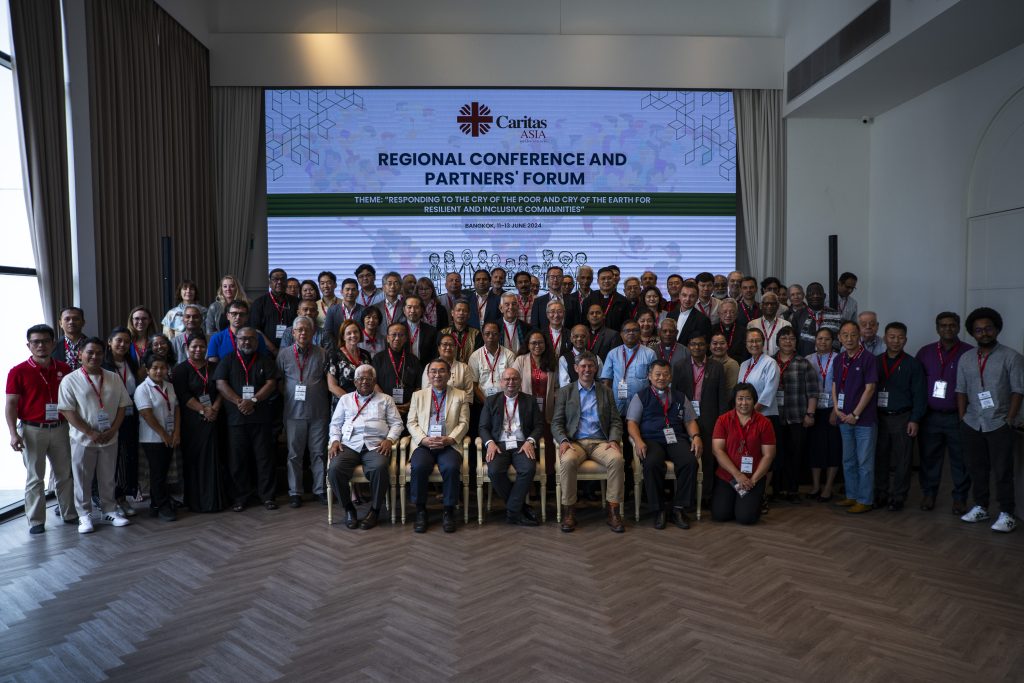The former executive director of Caritas Philippines highlighted the inextricable link between poverty and climate change, noting its stark manifestation in Asia, where vulnerable communities disproportionately bear the brunt of environmental degradation.
“Climate change hits hardest at the poorest communities, fundamentally because they lack the resources to adapt,” said Fr. Edwin A. Gariguez, social action director of the Apostolic Vicariate of Calapan, south of Manila.
Gariguez was the keynote speaker at the Caritas Asia Regional Conference, which took place in Bangkok, Thailand, on June 11, attended by approximately 100 representatives from 25 Caritas organizations across Asia.
The priest said that small farmers, fishers, and indigenous peoples are on the front lines, grappling with the direct impacts of environmental changes that threaten their livelihoods and survival.
Gariguez emphasized the need for effective policies that could provide immediate relief and long-term sustainability.
Discussing various extreme weather events, including the 2023 humid heatwave across South Asia and devastating typhoons in the Philippines, Gariguez explained that these phenomena “do not just disrupt daily lives—they obstruct long-term development.”
Recent scientific data showed the increased frequency and intensity of extreme weather events, underscoring the urgent need for regional adaptive strategies, according to Gariguez.
“The correlation between escalating climate events and the surge in health issues is undeniable,” noted Gariguez, adding that climate change exacerbates health crises, particularly respiratory and water-borne diseases.
“Our faith implores us to see the environmental crisis not just as a physical challenge but as a moral imperative,” Fr. Gariguez remarked.

He said that different Asian communities integrate spiritual beliefs and cultural values into their environmental conservation efforts, showing how these practices can forge strong commitments to ecological stewardship.
The priest praised organizations like Caritas Internationalis for their role in blending humanitarian aid with developmental strategies.
“By integrating immediate disaster response with long-term development plans, we pave the way for sustainable resilience,” he said. Gariguez cited cases where such integrated approaches have significantly improved community resilience against future vulnerabilities.
Highlighting the success of grassroots initiatives, Fr. Gariguez noted, “Empowerment and unity within communities are fundamental to effectively counter climate challenges.”
He stressed how local leadership and community-driven strategies are crucial in enhancing resilience and proactive capacities.
Addressing the critical issue of climate-induced displacement, Fr. Gariguez said the human family must “view displacement as more than just relocation—it’s a profound crisis of human security.”
He discussed the struggles of displaced communities, the adequacy of legal frameworks, and the international efforts required to support and protect these vulnerable groups.
The priest called for a concerted global effort to address the severe challenges posed by climate change and poverty in Asia.
With escalating crises, the proactive measures and resilience of communities will play a crucial role in navigating a sustainable future for the region. “This is more than an environmental issue—it’s a profound societal challenge that demands a comprehensive, compassionate response,” he said.






0 Comments